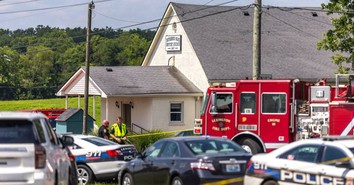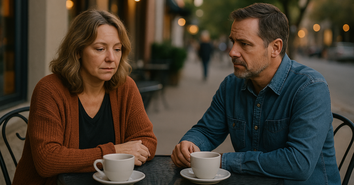Black Homeownership Still Trailing

MONTGOMERY, Ala. (AP) - More than 30 years after struggling to win the right to vote and other basic freedoms, blacks in the South still trail far behind their white neighbors in realizing the dream of owning a home, new Census figures show.
Figures from the 16 states considered part of the South region by the U.S. Census Bureau show the homeownership rate among whites rose 2.7 percent since 1990, while the black homeownership rate rose by only 1.2 percent. Overall, the homeownership rate among whites in the South is 74.9 percent; among blacks it is 51.2 percent.
``It clearly looks like that in the South, African-Americans did not benefit from the boom of the 1990s in the area of homeownership,'' said Frank Howell, a sociology professor at Mississippi State University.
Over the past 20 years, the homeownership rate among blacks in the South has dropped almost 1 percent, while the white homeownership rate rose by 3 percent, Census figures show.
Not all Southern states had the same experience. Blacks actually increased their rate of homeownership at a faster pace than whites over the past 10 years in four states - Georgia, Maryland, North Carolina and Tennessee.
The U.S. Department of Housing and Urban Development reported last month that the national homeownership rate stood at 67.7 percent in the second quarter of this year, tying a record high set last year.
Race comparisons between the 2000 census and the counts in 1990 and before are not exact because in the latest census citizens were allowed for the first time to declare that they consider themselves of more than one race.
Howell said during the 1970s in Mississippi, for instance, as in many other Southern states, the homeownership rate among blacks shot up from 49 percent to 59 percent, apparently a result of discriminatory barriers being removed.
``But not much has changed since then. I think most African-Americans would like to own a home, but don't have the cash,'' Howell said.
Martin Luther King III, president of the Southern Christian Leadership Conference, said the problem is partly the fault of banks making it harder for blacks to get loans or for anyone to get loans to buy homes in poorer, less-desirable neighborhoods.
``What this says is that African-Americans have not been able to access capital,'' King said.
Annie Corley, a black single mother of four, finally moved into a modest three-bedroom house of her own last year built with the help of Habitat for Humanity.
``Where I was staying was a bad place. I was so excited to get into this home,'' Corley said. ``My kids love it. They have their own rooms.''
Alabama state Sen. Charles Steele, a black Democrat from Tuscaloosa, said that homeownership in the South comes slower for blacks is a scar that dates back to slavery.
``The American dream did not include black folks. We are not part of the American dream,'' said Steele, president of the Alabama chapter of the SCLC. ``We've got to get folks knowing that we now are part of the American dream.''
Baylor University sociologist Charles Tolbert said many blacks appear to be stuck behind the final hurdles of segregation in that ``if someone doesn't fit the mode of homeownership, then they don't get the loan.''
But Dan Bailey, the executive vice president of the Alabama Bankers Association, said the problem is not discrimination but economics.
``In Alabama we still see a segment of the population that's not keeping pace in education and training,'' he said.
---
On the Net:
Census Bureau: http://www.census.gov/
Originally published August 22, 2001.







